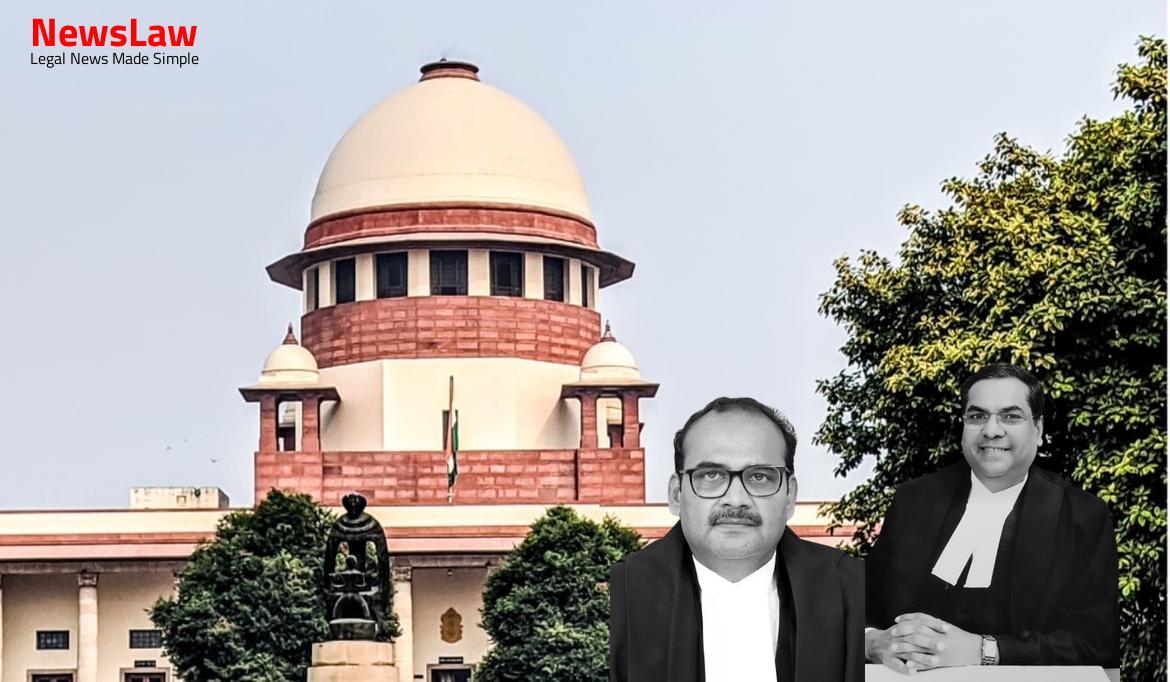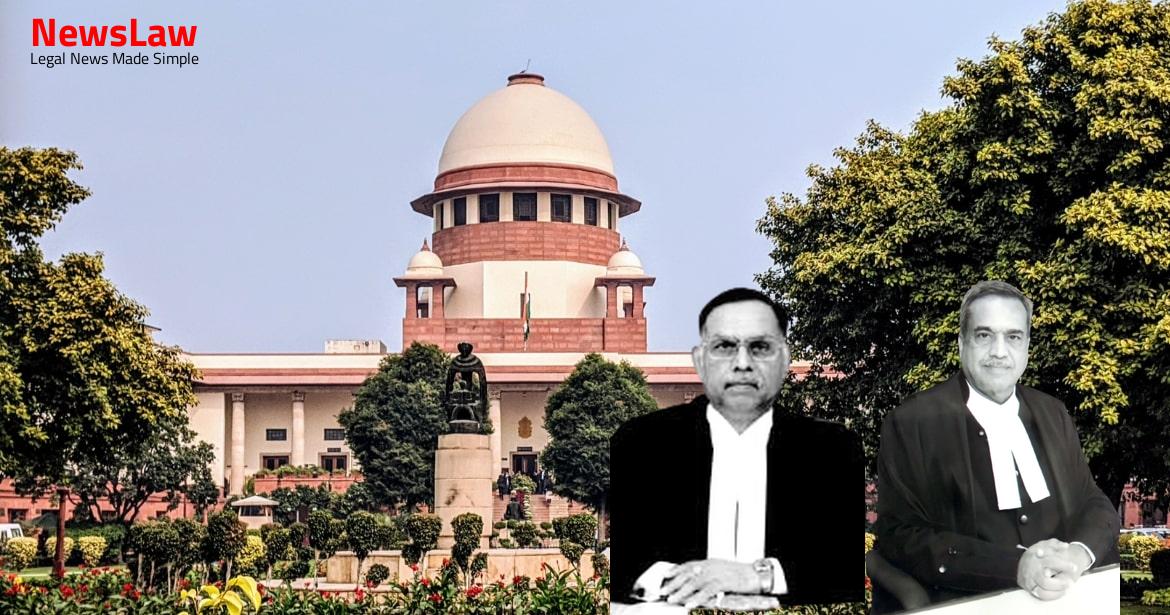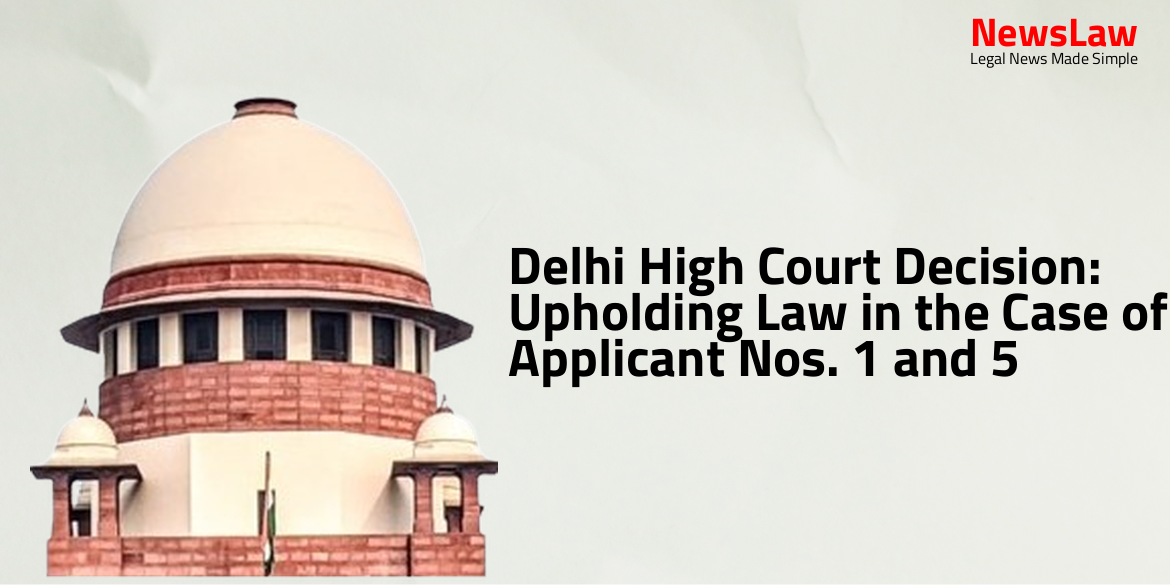Explore the intricate legal analysis conducted by the court in a recent case regarding the validity of sale deeds and a power of attorney. The court examined the lack of genuine consideration in the sale deeds, rendering them null and void. Additionally, the court scrutinized the legality of the power of attorney, ultimately resulting in a detailed judgment highlighting key legal principles. Dive into the complexities of this case’s legal analysis to gain valuable insights into property transaction law.
Facts
- The appellant Kewal Krishan and his elder brother Sudarshan Kumar acquired the suit properties under two sale deeds.
- The appellant remitted amounts to the appellant from his own earnings.
- Sudarshan Kumar claimed to be the sole owner of the suit properties.
- Sudarshan Kumar argued that the appellant accepted his sole ownership in a letter and voluntarily executed a power of attorney appointing Sudarshan Kumar as his attorney for the suit properties.
- Sudarshan Kumar contended that the sale deeds were legal and valid.
- Sudarshan Kumar raised a limitation defense against the prayers for declaration and share in compensation.
- The District Court held that the sale deeds dated 10 April 1981 were without consideration.
- The High Court found the sale consideration mentioned in the sale deeds of Rs.5,500/- and Rs.6,875/- respectively was not exorbitant and within reach of the sons of Sudarshan Kumar and his wife.
- The High Court held the appellant to be the owner of half share in the suit properties and upheld the validity of the power of attorney.
- The respondents filed separate second appeals which were allowed by the High Court.
- The District Court observed a recital in the sale deeds executed by Sudarshan Kumar indicating the appellant’s half share in the suit properties.
- The District Court directed Sudarshan Kumar to pay the appellant’s share in the consideration shown in the sale deeds dated 10 April 1981 with 12% interest.
- The appellant appealed the District Court’s judgment before the High Court.
- The trial court barred the prayer for a share in compensation for the tube well citing procedural provisions.
- The District Court found that Sudarshan Kumar failed to provide evidence of full payment for the suit properties.
- The District Court accepted that the appellant and Sudarshan Kumar were joint owners of the suit properties.
- The High Court upheld this joint ownership finding and dismissed the prayers to declare the sale deeds invalid on the basis of limitation.
- The High Court held the power of attorney to be valid.
Also Read: Recovery of Misappropriated Temple Funds: Court’s Legal Analysis
Arguments
- The appellant’s counsel argued that there was no evidence to prove that purchasers under the sale deeds dated April 10, 1981 had paid consideration to Sudarshan Kumar.
- The appellant claimed joint ownership of the suit properties and asserted that the sale deeds were void and sham, making him the owner of his share in the properties.
- The unamended plaints contended that the transactions of sale were sham and that the market value of the suit properties was higher than the price mentioned in the sale deeds.
- It was stated in the unamended plaints that Sudarshan Kumar’s minor sons and wife had no source of earning.
- The appellant’s counsel argued against amending the plaint to seek a specific declaration regarding the invalidity of the power of attorney and sale deeds.
- The appellant’s counsel highlighted the High Court’s error in recording a finding on the bar of limitation, noting that the challenge was to sale deeds dated April 10, 1981 and not March 12, 1976 and October 19, 1976 as assumed by the High Court.
- The counsel argued that the High Court wrongly overturned the decree passed by the District Court.
- – The appellant has no right, title, and interest in the suit properties.
- – The appellant accepted in a letter that the suit lands were purchased with amounts remitted by Sudarshan Kumar.
- – The appellant agreed to transfer the suit properties in the name of Sudarshan Kumar.
- – The prayers for declaration regarding the power of attorney and the sale deeds were incorporated in the plaint only in November 1985.
- – The prayers for declaration were argued to be barred by limitation.
- – It was emphasized that without a declaration on the invalidity or nullity of sale deeds, the appellant cannot receive any relief.
- – The appellant did not fulfill the initial burden by testifying in court.
- – No interference was deemed necessary with the impugned Judgment and order as per submission.
- – The issue of whether the purchasers under the sale deeds were bona fide was considered redundant in the submissions filed by the respondents.
- – The contention that the constituted attorney of Sudarshan Kumar was not a competent witness was claimed to not have been raised by the appellant.
Also Read: Legal Analysis in Assault and Homicide Case
Analysis
- The respondents failed to provide any evidence to prove that the minor sons had any source of income or paid the consideration mentioned in the sale deeds.
- The sale deeds were executed without payment of price, rendering them void as per Section 54 of the Transfer of Property Act.
- The contention that the appellant and Sudarshan Kumar were joint owners of the properties was supported by the unchallenged finding of the High Court.
- The sale deeds were deemed null and void as they were without consideration, as explicitly pleaded in the unamended plaint.
- There were specific pleadings that the sale deeds did not have consideration and were therefore void.
- No evidence was presented by Sudarshan Kumar to prove that the amounts mentioned in the sale deeds were transmitted by him to the appellant.
- The sale deeds did not affect the appellant’s share in the properties as there was no evidence of genuine consideration provided.
- The District Court found no evidence to support the contention that the properties were transferred to Sudarshan Kumar’s wife and sons without consideration.
- The High Court overlooked the lack of evidence regarding the payment of consideration by Sudarshan Kumar’s sons and wife in the sale deeds of 1981.
- The sale deeds of 1981 will not confer any rights to Sudarshan Kumar’s wife and children as they were considered void due to lack of genuine consideration.
- There was no evidence to show that Sudarshan Kumar’s wife or children had any source of income to pay the consideration in the sale deeds.
- The transaction of selling the properties to Sudarshan Kumar’s wife and children based on a power of attorney is considered a sham transaction.
- Additional submissions made by respondents on 16 November 2021 deemed irrelevant.
- Issue of bar of limitation of prayers for declaration not relevant as document is void and can be challenged in collateral proceedings.
- District Court passed decree granting appellant joint possession of suit properties with Sudarshan Kumar.
- No title transferred under sale deeds, appellant retains undivided half share in suit properties.
Also Read: Balancing Justice: Bail in Prolonged Incarceration Case
Decision
- The impugned Judgment of the High Court has been set aside.
- The common judgment and order dated 21 May, 1988, passed by the Additional District Judge, Ropar, Punjab in Civil Appeal bearing No.31/256/23.07.1986 and Civil Appeal bearing No.34/257 /23.07.1986 is restored.
- The appeals are allowed based on the above decisions.
- The decree passed by the District Court is to be restored by setting aside the impugned judgment and order of the High Court.
Case Title: KEWAL KRISHAN Vs. RAJESH KUMAR (2021 INSC 765)
Case Number: C.A. No.-006989-006992 / 2021



